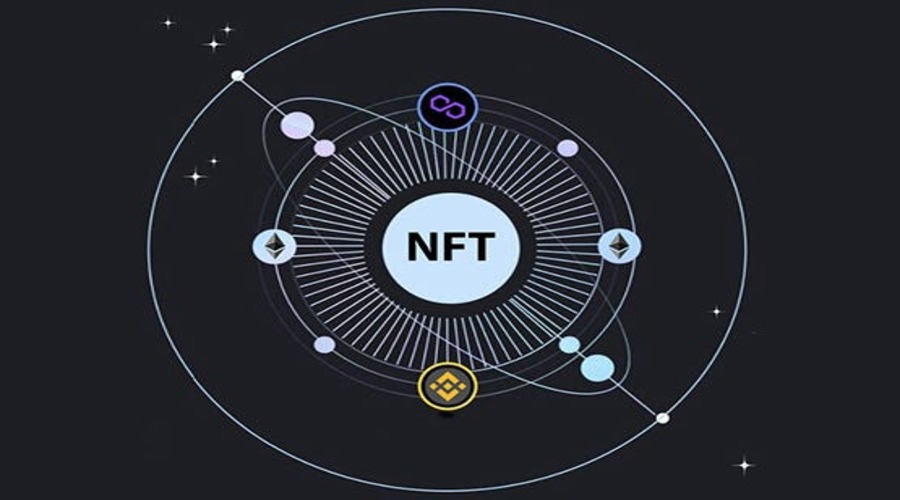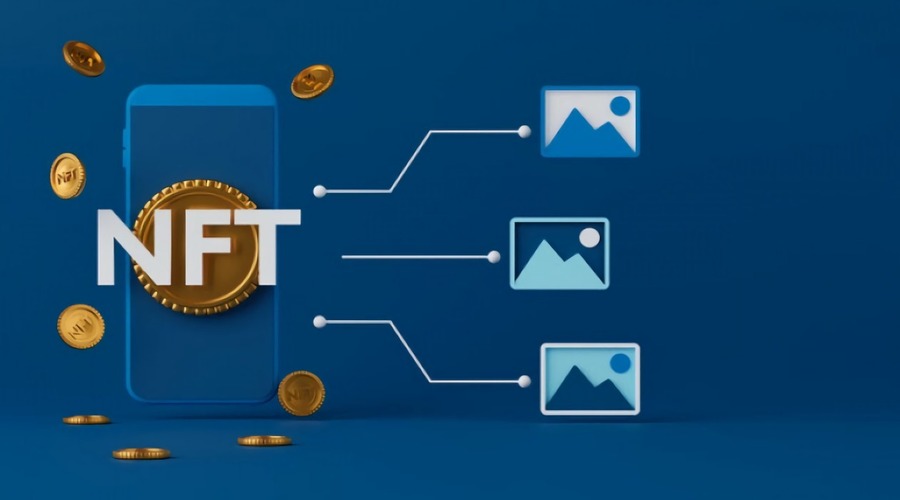The Impact of Oracles on NFT Security in Cross-Chain Interoperability

The Impact of Oracles on NFT Security in Cross-Chain Interoperability
As the popularity of non-fungible tokens (NFTs) continues to grow, the need for secure and efficient cross-chain interoperability becomes crucial. NFTs, which represent unique digital assets such as artwork, collectibles, and virtual real estate, rely on blockchain technology for their ownership and transactional records. However, the decentralized nature of blockchain networks presents challenges when it comes to cross-chain transactions. This is where oracles play a significant role in ensuring the security and reliability of NFT transactions across different blockchains.
Understanding Non-Fungible Tokens (NFTs)
NFTs are digital assets that are indivisible and unique. Unlike cryptocurrencies such as Bitcoin or Ethereum, which are fungible and can be exchanged on a one-to-one basis, NFTs cannot be exchanged on a like-for-like basis. Each NFT possesses distinct characteristics and properties that differentiate it from others. These unique qualities make NFTs ideal for representing ownership of digital assets in various industries, including art, gaming, music, and real estate.
The Need for Cross-Chain Interoperability
In the blockchain ecosystem, different blockchains exist, each with its own set of protocols and features. This fragmentation poses a challenge when it comes to interoperability, as NFTs created on one blockchain may not be compatible or transferable to another blockchain. Cross-chain interoperability allows NFTs to move seamlessly between different blockchains, unlocking new possibilities for collaboration, liquidity, and market access.
Role of Oracles in Cross-Chain Interoperability
Oracles serve as a bridge between blockchain networks and real-world data. They act as intermediaries that provide external information to smart contracts on the blockchain. In the context of cross-chain interoperability for NFTs, oracles enable communication and data transfer between different blockchains, ensuring that transactions are valid and secure.
Oracles retrieve and verify data from external sources, such as price feeds, identity verification systems, and off-chain events. They then relay this information to the smart contracts that govern NFT transactions. By leveraging oracles, NFT marketplaces and platforms can expand their reach and offer their users access to a wider range of assets and blockchain networks.
Ensuring Security in Cross-Chain NFT Transactions
Security is paramount when it comes to cross-chain NFT transactions. Oracles must provide accurate and tamper-proof data to ensure the integrity of the transaction process. Several security measures can be implemented to enhance the security of cross-chain NFT transactions:
Data Encryption and Decryption
Sensitive data transmitted between blockchains should be encrypted to prevent unauthorized access. Encryption ensures that only authorized parties can decrypt and interpret the data, maintaining confidentiality and privacy.
Multi-Signature Authentication
Multi-signature authentication involves requiring multiple parties to sign off on a transaction. This ensures that no single entity has full control over the transaction process, reducing the risk of fraudulent or malicious activities.
Auditing and Monitoring
Regular auditing and monitoring of oracle services are essential to detect any suspicious activities or potential vulnerabilities. Continuous monitoring helps identify and mitigate security risks promptly.

Challenges and Risks Associated with Oracles
While oracles play a vital role in cross-chain NFT interoperability, they also present certain challenges and risks that need to be addressed:
Trustworthiness of Oracles
Oracles rely on external data sources, which may be subject to manipulation or compromise. Ensuring the trustworthiness and reliability of oracles is crucial to maintain the security of cross-chain NFT transactions.
Centralization vs. Decentralization
The debate between centralized and decentralized oracles continues to be a topic of discussion. Centralized oracles may introduce a single point of failure, while decentralized oracles may face scalability and consensus challenges.
Cost and Scalability
Cross-chain interoperability can incur additional costs, especially when multiple oracles are involved in the transaction process. Ensuring scalability while maintaining cost-efficiency is a significant challenge in the context of oracles and cross-chain NFT transactions.
Solutions and Best Practices for NFT Security
To address the challenges and risks associated with oracles in cross-chain NFT transactions, several solutions and best practices can be implemented:
Trusted Oracle Providers
Choosing reputable and trusted oracle providers is essential for the security and reliability of cross-chain NFT transactions. Conducting thorough research and due diligence before selecting an oracle provider helps mitigate potential risks.
Decentralized Oracles Networks
Leveraging decentralized oracle networks can enhance the security and decentralization of cross-chain NFT transactions. These networks distribute data verification and retrieval across multiple nodes, reducing the risk of a single point of failure.
Transparent Governance and Auditing
Implementing transparent governance and auditing mechanisms for oracles ensures accountability and allows for community oversight. Regular audits and open discussions regarding oracle security help identify and address potential vulnerabilities.
Future of Oracles in Cross-Chain NFT Transactions
The future of oracles in cross-chain NFT transactions looks promising. As the blockchain ecosystem continues to evolve and mature, advancements in oracle technology will enhance the security, efficiency, and interoperability of NFT transactions. The integration of advanced cryptographic techniques, decentralized consensus mechanisms, and improved data verification processes will further strengthen the role of oracles in ensuring secure cross-chain NFT transactions.
- Advanced Cryptographic Techniques: The integration of advanced cryptographic techniques, such as zero-knowledge proofs and secure multi-party computation, will enhance the privacy and security of cross-chain NFT transactions. These techniques will enable secure data transfer and verification without exposing sensitive information.
- Decentralized Consensus Mechanisms: The future of oracles will see the implementation of decentralized consensus mechanisms, such as proof-of-stake or sharding, to improve scalability and reliability. These mechanisms will distribute the verification process across a network of nodes, increasing resilience and reducing the risk of manipulation or single points of failure.
- Improved Data Verification Processes: Oracles will continue to evolve in terms of data verification, implementing more robust methods to ensure the accuracy and reliability of external data sources. Innovations such as reputation systems, data attestations, and data aggregations will be employed to enhance the trustworthiness of oracles.
- Wider Range of Data Sources: In the future, oracles will have access to an expanded range of data sources, including real-world events, IoT devices, and off-chain systems. This broader scope of data will enable more complex and versatile NFT use cases, providing users with a richer and more diverse ecosystem.
- Interoperability Standards: The development of standardized protocols and interoperability frameworks will simplify the integration of different blockchain networks and oracles. These standards will enable seamless communication and data transfer, fostering a more interconnected and efficient cross-chain NFT ecosystem.
- Integration with Smart Contracts: Oracles will become more tightly integrated with smart contracts, enabling real-time interactions and dynamic updates based on external data. This integration will open up new possibilities for real-world applications of NFTs, such as automated royalty payments, event-triggered actions, and dynamic pricing mechanisms.
- Regulatory Compliance: As the NFT market matures, regulatory compliance will become a crucial aspect of cross-chain NFT transactions. Oracles will play a vital role in ensuring compliance with regulations by providing verifiable and auditable data, facilitating trust between market participants and regulatory bodies.
- Enhanced User Experience: The future of oracles will focus on improving the user experience by reducing transaction costs, increasing transaction speed, and simplifying the process of accessing and utilizing cross-chain NFTs. User-friendly interfaces and intuitive integration with wallets and marketplaces will make cross-chain NFT transactions more accessible to a wider audience.
- Collaboration and Partnerships: Oracles will forge strategic partnerships and collaborations with blockchain networks, NFT marketplaces, and industry stakeholders to foster innovation and drive the adoption of cross-chain NFT transactions. These partnerships will facilitate the development of tailored solutions and ensure interoperability across different platforms.
- Community Governance: Governance models for oracles will evolve to include community-driven decision-making processes. Community governance will enhance transparency, accountability, and inclusivity, allowing stakeholders to actively participate in shaping the future direction of oracles and cross-chain NFT transactions.
In summary, the future of oracles in cross-chain NFT transactions holds tremendous potential. With advancements in cryptographic techniques, decentralized consensus mechanisms, and data verification processes, oracles will play a vital role in ensuring secure, scalable, and interoperable cross-chain NFT transactions. These developments will enhance the user experience, foster innovation, and drive the mainstream adoption of NFTs in various industries.
Conclusion
Oracles play a crucial role in enabling secure and efficient cross-chain interoperability for non-fungible tokens. By bridging different blockchain networks and facilitating the transfer of data and assets, oracles ensure the integrity and reliability of NFT transactions. However, challenges such as trustworthiness, centralization vs. decentralization, and scalability need to be addressed to unlock the full potential of oracles in cross-chain NFT transactions. With the implementation of best practices and innovative solutions, the future of oracles in cross-chain interoperability looks promising, paving the way for a more connected and vibrant NFT ecosystem.
FAQs
- Q: How do oracles ensure the security of cross-chain NFT transactions? A: Oracles retrieve and verify external data, ensuring the integrity and validity of cross-chain NFT transactions.
- Q: What is the role of encryption in cross-chain NFT transactions? A: Encryption helps protect sensitive data transmitted between blockchains, ensuring confidentiality and privacy.
- Q: What are the challenges associated with oracles in cross-chain interoperability? A: Challenges include trustworthiness of oracles, the debate between centralization and decentralization, and cost and scalability.
- Q: How can decentralized oracle networks enhance the security of NFT transactions? A: Decentralized oracle networks distribute data verification across multiple nodes, reducing the risk of a single point of failure.
- Q: What does the future hold for oracles in cross-chain NFT transactions? A: Advancements in oracle technology, such as improved data verification processes and decentralized consensus mechanisms, will enhance the security and efficiency of cross-chain NFT transactions.
